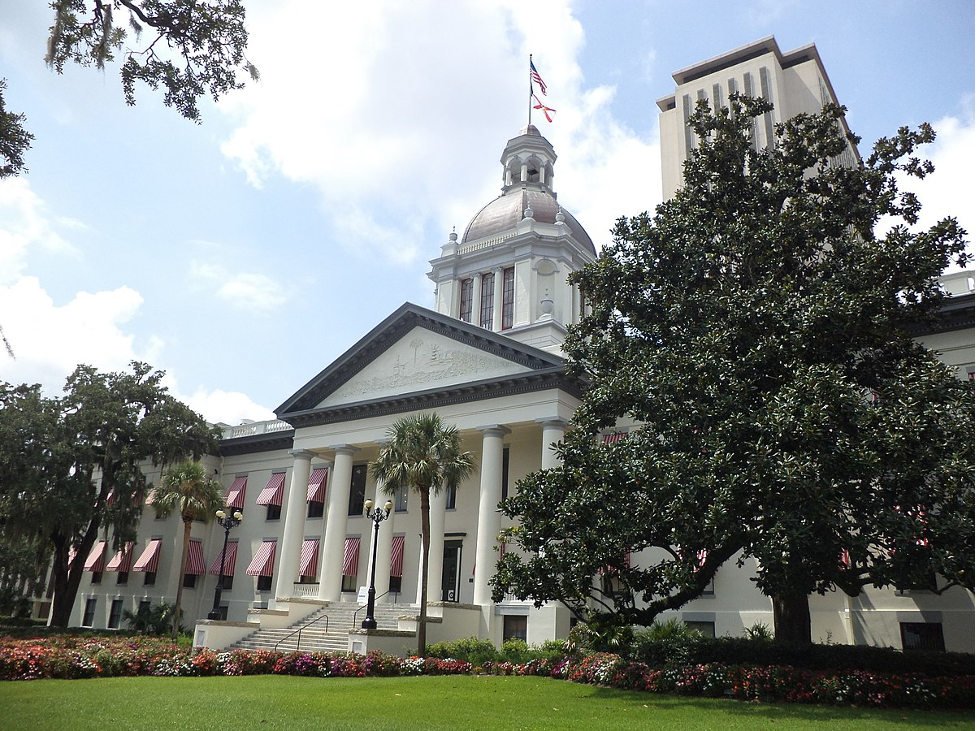A new amendment to the Florida Constitution that would raise the vote margin needed to adopt a single-payer health care system is moving toward passage by the state Senate. SJR 340, authored by Sen. Manny Díaz Jr., R-Hialeah, has passed through two Senate subcommittees before moving forward on a March 11th vote of 11-6 by the Committee on Appropriations. The joint resolution now awaits a vote by the Committee on Rules.
The bill would amend Article III of the State Constitution to require a supermajority vote—two-thirds of both legislative chambers— to implement single-payer health care statewide. A single-payer health care system, in which one agency funds a single plan for all Florida residents and is responsible for ensuring everyone receives necessary treatment, would mark a major and fundamental change to the Floridian health care system.
Universal health care is championed by many members of the left-wing, including Sen. Bernie Sanders, a prominent democratic-socialist with popularity among many Democrats who supported his 2016 and 2020 candidacies for the presidency. Medicare for All, a nickname for the political movement that embraces the adoption of single-payer health care on a national scale, is a benchmark of more left-wing ideologies like democratic-socialism, socialism and communism.
Democrats in both the House of Representatives and the Senate have introduced various bills that aim to expand upon the Affordable Care Act of 2010 (known colloquially as “Obamacare”) and implement a centralized system of universal health care, though they face heavy opposition from Republicans who oppose such heavy government involvement and have been trying to overturn the Affordable Care Act since its passage.
The idea of single-payer health care, which is a distinct type of universal health care, inherently involves heavy government involvement in deciding which and what kind of agency would be chosen to ensure an entire population and their health care needs. The nature of Republican conservativism is against such centralization, advocating for lessened government involvement in economic affairs.
Additionally, many fear that more government funding and involvement in health care are steps down the road toward a socialist welfare state that has already been paved by social programs such as Medicare and Medicaid. These programs are meant to benefit society as a whole but, conversely, require more taxes paid by individual citizens and more government influence over the health care industry.
The deep-rooted fear and dislike of policies that limit capitalism dates back to McCarthyism and the Cold War when the number one enemy was communism as the antithesis of the American economic system under capitalism. It didn’t help that the other ‘superpower’ nation was communist in name, nor does it help that the greatest economic threat posed by a nation today is another that is communist in name.
To many, socialism is just as hefty a buzzword as communism, considering their seemingly similar definitions and intertwined history. Universal health care and other such programs that are championed by democratic-socialists, which is itself different from socialism, still holds the sub textual “communist” connotation. Should one consider the single-payer system as separate from this, it still does not align with the Republican platform.
The single-payer system does not fall within the definition of true, free-market capitalism as insurance companies would necessarily become obsolete, or one company might win a bid for the national monopoly and competition would be eliminated. This depends on how single-payer health care would be implemented upon passage and sits on a very large “if” given extreme partisan division over the matter.
In Florida, the speedy run of SJR 340 toward the Senate floor is indictive of wariness of what might happen if Democrats were to gain control of the state legislature within the next few election cycles. The passage of something as politically controversial as statewide single-payer health care undoubtedly worries Florida’s Republican politicians. Yet, despite its reputation as a swing state in national elections, the state government has been solidly Republican for over twenty years.
The passage of Sen. Díaz’s resolution in the Florida Legislature is likely but, because it entails an amendment to the Constitution, it must also be approved by 60% of a popular vote. The likelihood of that may be just as uncertain as to how Floridians will vote in national elections, especially because there are just over 100,000 more voters registered as Democrat than Republican but over three million are registered with no party affiliation.
Notably, Díaz also penned SJR 150, a resolution “denounces democratic-socialism in favor of the true American values of individual liberty and democracy,” which along with its counterpart in the House, HR 145, very plainly shows the right-wing stance of many Florida officials.
The Historic Florida Capitol shadowed by the Florida State Capitol in 2013. Unmodified image by Michael Rivera used under a Creative Commons license. (https://bit.ly/3wortzL)
Check out other recent articles from the Florida Political Review here.





